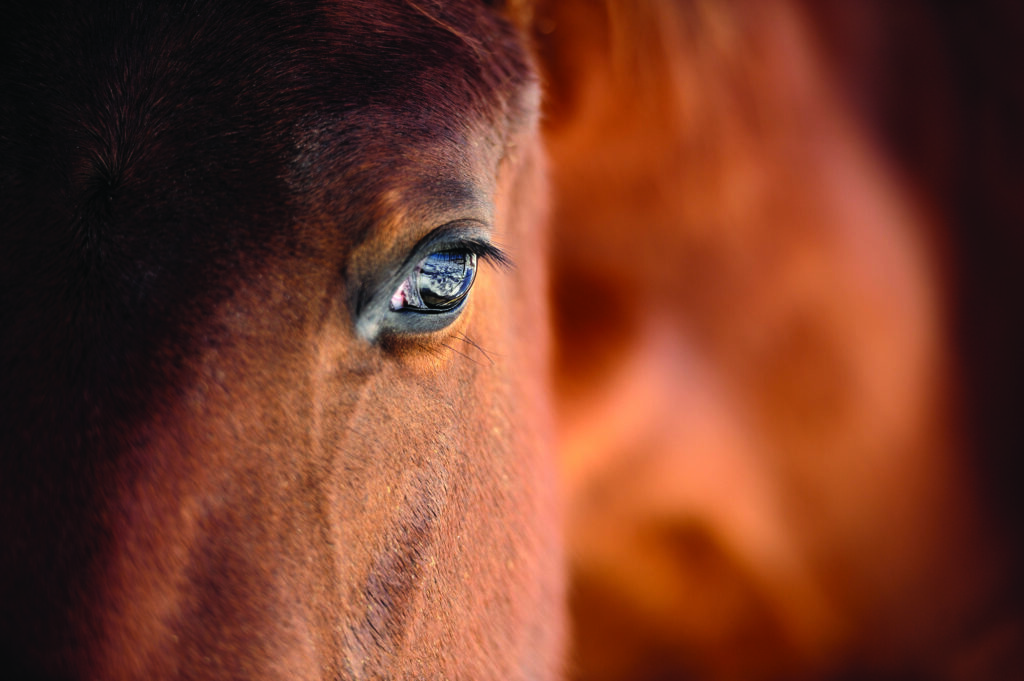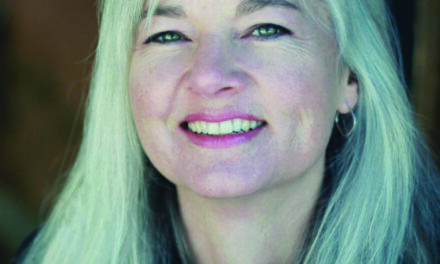“The Horse Is Never Wrong”
—Tom Dorrance
Or another way to say that is that it is never the horse’s fault. In reference to riding, Buck Brannaman said, “There are no problem horses, only problem riders.” What does all of this really mean? Are we doing something wrong? In all horse circles you may step into, you will hear many perspectives, some of them scientifically or experience based, but when it comes to horses, there are also a lot of practices that are based on traditions, beliefs, cultural and social norms—not necessarily what is best for the horse. How do we do better for our horses—by their point of view and not ours? How do we even know what really is best for them?
“Sometimes it takes a lot of trial and error, while being curious about why something is happening.”
Knowledge
The majority of the time, I believe people are doing the best with the knowledge they currently possess. As Buck Brannaman put it, “I’ve always wanted to do the right thing by a horse; that’s never changed. It’s just that as my knowledge grew, I’ve been able to offer the horse a better human being.” I am sure some of us cringe when we think back on horse experiences years ago, where now we understand more and we would definitely do better by our horses today.
We all start from somewhere; the important thing is to not get stuck there and to keep educating yourself and gaining knowledge from respected sources. Sources where it is evident that they are trying to do what is best for the horse, not themselves. Horses are incredible, forgiving creatures, and what they have to teach us about them and ourselves is a journey that should only end when our time on Earth is done. Olympic riders, who have been riding almost every day of their lives for multiple decades, true masters of their discipline, still take lessons and have coaching. “The more you know, the less you know” certainly applies.
Anthropomorphizing and Empathy
Some of the miscommunications between horses and humans arise when we anthropomorphize or interpret what the horse is thinking in terms of human characteristics. Horses live in the present; they mirror our emotions, and even align their heartbeat with ours. However, horses do not have human needs, thoughts or emotions. There are a lot of similarities between us as mammals, but there are also incredible differences. They have their own unique ethological characteristics. At the same time, horses are proven sentient creatures with the ability to perceive and have positive and negative feelings.
As master horseman Ray Hunt explains it, “There is no way that the horse will ever try to take advantage of you. He’s as honest and as truthful as anything you could ever work with. He has no ego that gets in his way. He has no pride that gets in his way. He doesn’t know what win or lose is. And those are the four things that get in the human’s way. It’s very sad. All the horse is trying to do is survive; he’s trying to make it. So I try to work with him like he was me, just like I hope he would work with me.”
A balanced empathy allows us to try to interpret behaviors or expressions through their eyes, understanding that something could be bothering the horse, making them excited, scaring or hurting them. Sometimes it takes a lot of trial and error, while being curious about why something is happening. Maybe the bit is pinching, maybe the noseband is too tight, maybe the saddle doesn’t fit, maybe their hocks hurt… To anthropomorphize would be to think, he is just being a jerk today or she is just being a mare. That’s just not possible—there is more going on and it is our burden to figure it out.
According to Lisa Ashton, M.Sc., Equitation Science Consultant in Stafford, U.K., “A horse-centered approach uses scientific evidence to reveal a horse’s needs—as opposed to what excess empathy makes us think he needs. A horse’s sense of security is based on the concept of predictability. Can he control the pressures he experiences? Can he have his ethological needs for feeding, movement, and social company met? True empathy for the horse would mean our decisions are driven by these objectives rather than by our own.”
Kirrilly Thompson, PhD, a Qualitative Research Consultant in Adelaide, South Australia, believes, “We need to be developing a form of communication where we’re ‘asking’ horses and ‘listening’ to their responses. We don’t always have to follow their response, but we should at least be consulting them and interacting with compassion.”
Correct Communication
Many of you who have had the opportunity to ride a horse trained to a high level can understand that when you first got on the horse, you were like a kid in the cockpit pushing every button you could reach, not intentionally, but the slightest pressure from your leg, seat or a turn of your head had the horse doing all kinds of unintended movements. Are they being uncooperative? No, they are really just trying to figure out what you are asking. The other day, my son was on his horse and working on doing a turn on the forehand and his horse started backing up in a circle. Well, my son thought Brisby was not cooperating at all, but I kindly pointed out that he may have had the one leg in the correct position, but was he unaware that he was also pushing on him with the other leg at the same time with his reins uneven? Aren’t we all doing this sometimes?
Legendary horseman Tom Dorrance hits the nail on the head with, “The horse may not be doing the thing that is the right thing for what the rider is asking him, but as far as the horse is concerned, he is doing the right thing.”
If we are around horses on the ground or riding, we are all horse trainers for better or worse. The great news is that we are in the age of information. There are so many ways to increase our knowledge and improve our partnership with our horses without even leaving home. Recognize if your empathy may be tilting toward anthropomorphizing and how you can take some time to watch and “listen” to your horse to figure out what they might be trying to tell you. Listen to them and when you ask something of them, think about whether you are asking correctly. We are on this journey because of our love for the horse. Put your ego, expectations, emotions and motives aside and act from patience to seek the best approach to do what is right for them.
Horses were never wrong. They always did what they did for a reason, and it was up to you to figure it out.
—Jeannette Walls
Heather McWilliams © 2023


